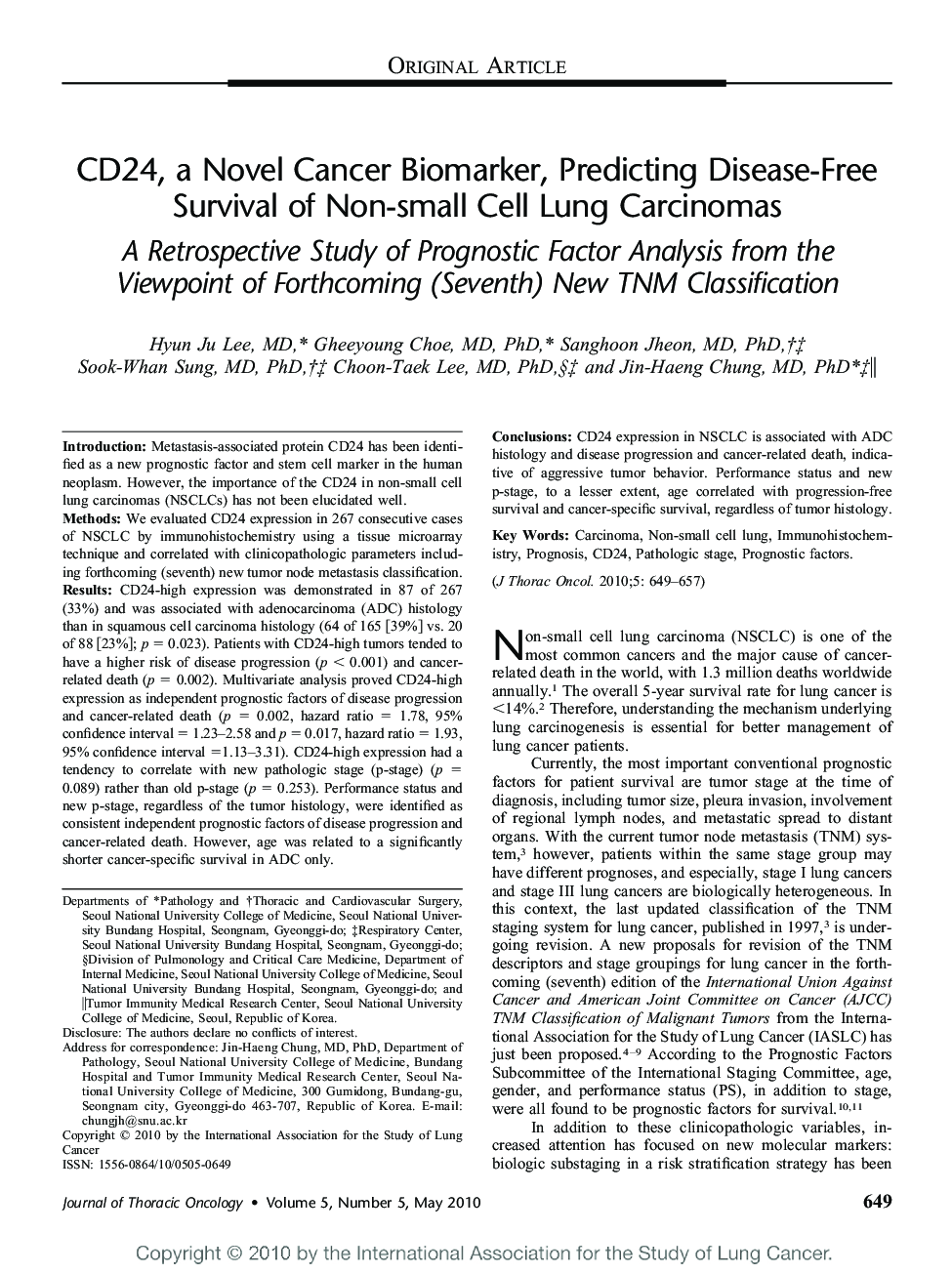| Article ID | Journal | Published Year | Pages | File Type |
|---|---|---|---|---|
| 3990914 | Journal of Thoracic Oncology | 2010 | 9 Pages |
IntroductionMetastasis-associated protein CD24 has been identified as a new prognostic factor and stem cell marker in the human neoplasm. However, the importance of the CD24 in non-small cell lung carcinomas (NSCLCs) has not been elucidated well.MethodsWe evaluated CD24 expression in 267 consecutive cases of NSCLC by immunohistochemistry using a tissue microarray technique and correlated with clinicopathologic parameters including forthcoming (seventh) new tumor node metastasis classification.ResultsCD24-high expression was demonstrated in 87 of 267 (33%) and was associated with adenocarcinoma (ADC) histology than in squamous cell carcinoma histology (64 of 165 [39%] vs. 20 of 88 [23%]; p = 0.023). Patients with CD24-high tumors tended to have a higher risk of disease progression (p < 0.001) and cancer-related death (p = 0.002). Multivariate analysis proved CD24-high expression as independent prognostic factors of disease progression and cancer-related death (p = 0.002, hazard ratio = 1.78, 95% confidence interval = 1.23–2.58 and p = 0.017, hazard ratio = 1.93, 95% confidence interval =1.13–3.31). CD24-high expression had a tendency to correlate with new pathologic stage (p-stage) (p = 0.089) rather than old p-stage (p = 0.253). Performance status and new p-stage, regardless of the tumor histology, were identified as consistent independent prognostic factors of disease progression and cancer-related death. However, age was related to a significantly shorter cancer-specific survival in ADC only.ConclusionsCD24 expression in NSCLC is associated with ADC histology and disease progression and cancer-related death, indicative of aggressive tumor behavior. Performance status and new p-stage, to a lesser extent, age correlated with progression-free survival and cancer-specific survival, regardless of tumor histology.
